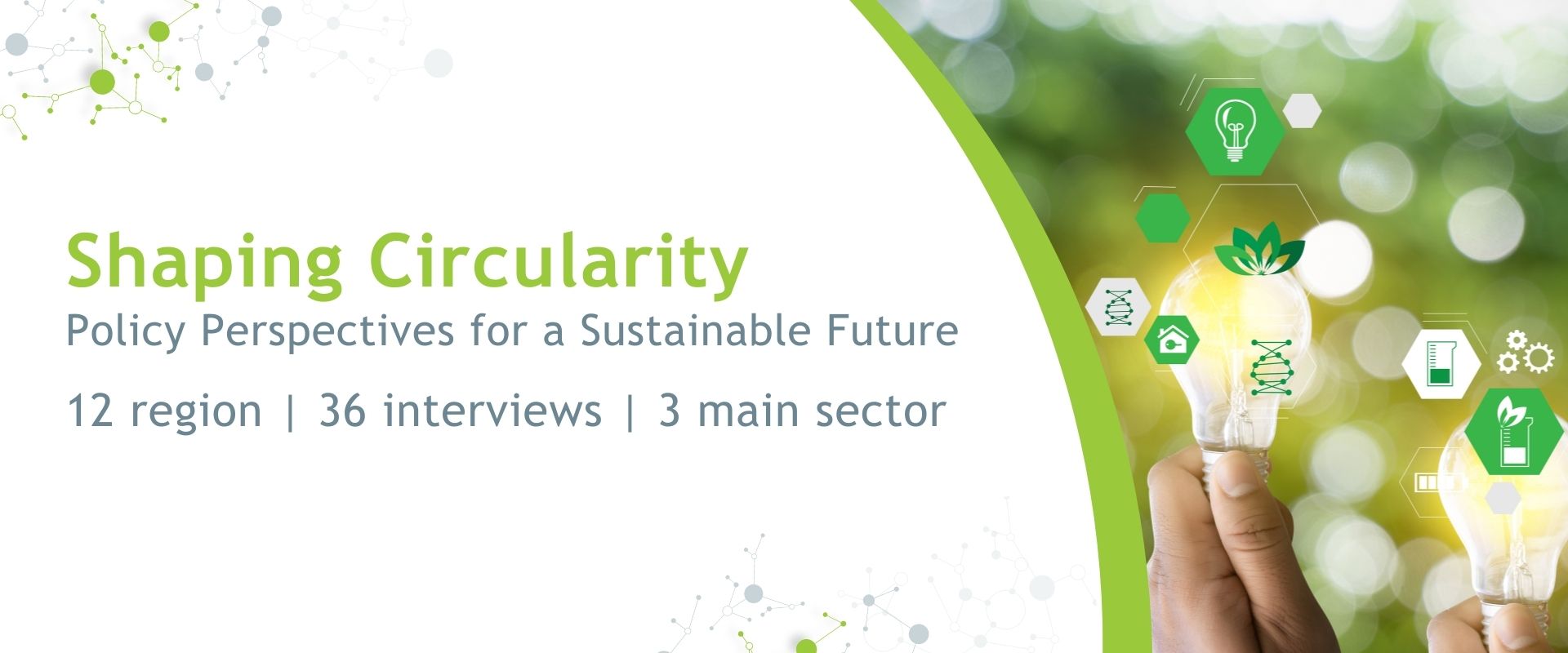The SMART CIRCUIT project, a pioneering initiative aimed at accelerating the integration of digital technology into the Circular Economy (CE), recently concluded a comprehensive series of interviews with 36 policy makers from across Europe. These interviews are crucial in shaping a transnational approach that enhances resource efficiency and economic competitiveness in key manufacturing sectors.
The primary objective of these interviews was to gather diverse perspectives on the challenges and opportunities related to Circular Economy policies and practices. By engaging with policy makers at local, regional, and national levels, SMART CIRCUIT aims to identify strategic interventions that could support the broader adoption of sustainable practices in the textiles, construction, and ICT/electronics industries.
Key Findings from the Interviews
- Broad support for circular economy initiatives: The interviews revealed a strong endorsement across all governance levels for initiatives that promote circularity, particularly those that integrate digital technologies to enhance resource management and waste reduction.
- Challenges in implementation: Despite widespread support, significant challenges persist, particularly in harmonizing policies across regions and aligning them with existing digital infrastructure. Many policy makers highlighted the need for enhanced collaboration between the public and private sectors to overcome these barriers.
- Strategic recommendations: Based on the insights gathered, several strategic recommendations were formulated. These include the development of more robust frameworks for public-private partnerships, increased investment in digital technologies that support circularity, and the creation of educational programs to raise awareness about the benefits of a circular economy.
- Digital transformation as a catalyst: There is a consensus among the interviewed policy makers that digital transformation is a critical enabler for the circular economy. Technologies like AI, IoT, and blockchain were frequently mentioned as tools that could drive efficiency and transparency in circular processes.
- Future policy development: The interviews have also shaped the future policy development within the SMART CIRCUIT project. There is a clear directive towards creating policies that not only support sustainable practices but also foster an environment conducive to innovation and economic growth.
The policy maker interviews conducted by the SMART CIRCUIT project have provided invaluable insights into the current state and future potential of circular economy initiatives. By leveraging these insights, the project can better align its strategies with the needs and challenges identified. As the project moves forward, these interviews will continue to serve as a foundational element in building a resilient, sustainable, and economically competitive circular economy across Europe.
